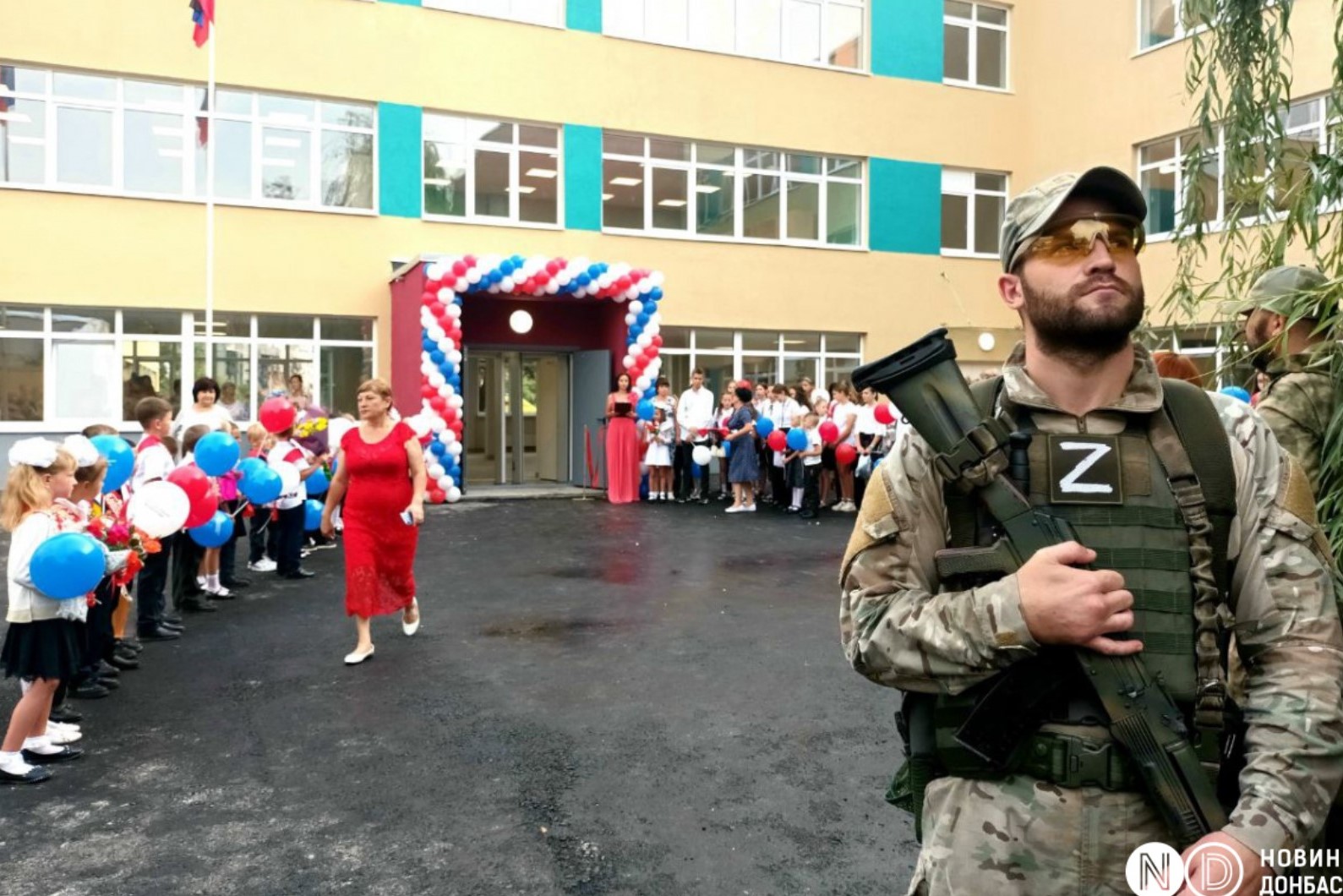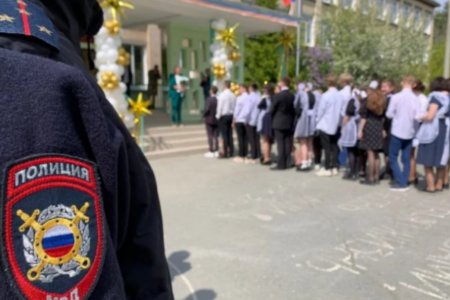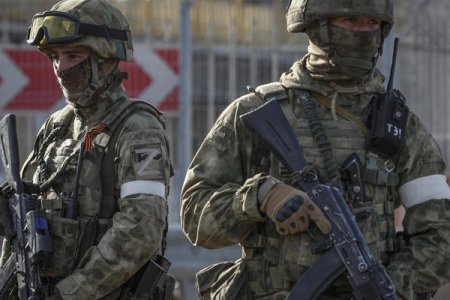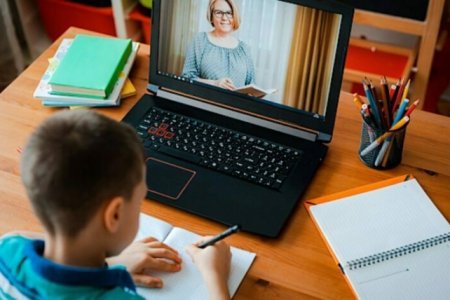
EBU Investigative Journalism Network have published the results of a major study into Russia’s aggressive policy of Russification in occupied Ukraine. The research was carried out by journalists from several European public service media, including Ukraine’s Suspilne. While most of the methods that Russia is using to foist Russian citizenship and eliminate Ukrainian identity have been reported here, the European investigation is especially welcome given the efforts Russia is making to achieve what EBU calls an “information black hole on the European continent”,
Russia is currently occupying nearly 20% of Ukraine’s territory, with this meaning that, potentially, up to 11 million people could be living under Russian occupation. All of the methods that the European journalists found through their interviews, including of people living under occupation, and analysis were first seen in occupied Crimea and, to some degree, in the parts of Donetsk and Luhansk oblast that Russian and Russian-controlled forces seized in 2014. The lack of sufficient international reaction back in 2014 makes publicity so vital now about the Russian-installed “reality where torture, death, coercion, deportation, cultural assimilation and military indoctrination are rampant. potentially contravening international law and in some cases amounting to possible war crimes.”
Forced Russian citizenship and mobilization
Russia is claiming that the (occupied parts of) Donetsk, Luhansk, Kherson and Zaporizhzhia oblasts have now ‘joined the Russian Federation’ and is aggressively forcing Ukrainians on newly seized territory to take on Russian citizenship. The study points out that food, education, jobs, healthcare; and life-saving medicines, as well as pensions and property are contingent on taking Russian citizenship. The journalists have spoken with people who confirmed that those needing insulin on a daily basis were basically forced to choose: a Russian passport or their life.
Kateryna Rashevska, a legal adviser to the Regional Centre for Human Rights, has pointed out a key consequence of such imposed citizenship, namely that it makes it possible to force those with Russian passports to serve in the Russian armed forces. This, she stresses, is why it constitutes a war crime.
Russia is using various types of coercion and, in the case of public sector workers and those in any vulnerable position, are almost certainly leaving them with no choice but to take Russian citizenship. The journalists have clearly also received information, reported here in June 2023, that victims of the massive flooding after the explosion to the Russian-occupied Kakhovka Dam were only rescued if they had taken Russian passports.
The Russian defence ministry report that of the 300 thousand men officially mobilized in 2022, 80 thousand were from occupied parts of Donetsk and Luhansk oblasts [occupied Donbas]. The report does not mention that these figures may well not be accurate. It was clear from the beginning of Russia’s full-scale invasion of Ukraine that men from occupied Donbas were being rounded up at work, on the street and sent to fight At least until after Russia staged its pseudo-referendums in September 2022, the men were effectively treated as cannon fodder as the Russian defence ministry didn’t have to mention them on official statistics.
It was feared from the outset that any Ukrainians on occupied territory would be in danger of mobilization if they took Russian passports, and there have been reports that recruitment offices in occupied parts of Kherson and Zaporizhzhia oblasts are beginning to summon men of military age.
‘Deportation’
As reported here, Russian president Vladimir Putin signed a decree in April 2023 claiming that Ukrainians (on territory under occupation) who had not taken Russian citizenship by July 2024 would be deemed ‘foreigners’ and would be subjected to ‘deportation’.
In fact, Putin’s decree was even more sinister since the list of actions which would be deemed to “pose a threat to Russia’s national security” and supposedly justify deportation included normal behaviour in any democratic state.
The new report cites a text message from a woman in Zaporizhzhia oblast who mentions that “Deportees seem to be left on the road near Vasylivka or Kamianske, but those people disappear, or they are found shot, or forced to dig trenches.”
In February 2023, the Russians claimed to have ‘deported’ Oleksiy Brazhnyk, an engineer responsible for safety at the Zaporizhzhia Nuclear Power Plant [ZNPP], whom they had taken prisoner and tortured back in September 2022. He disappeared (details here).
The EBU report, unfortunately, fails to mention the clear evidence that Russia’s so-called ‘referendums’ were entirely fake, as were their supposed results. Nor do they address the degree to which occupied Donbas was under the influence of an information vacuum, mass propaganda and indoctrination in schools from 2014. It is certainly noticeable that in occupied parts of Kherson and Zaporizhzhia, Russia is known to have had significantly greater difficulty getting teachers, doctors, etc. to work for them. The fact that the Russians or local collaborators had to resort to threats – of deportation or that parents’ children would be taken from them – to force parents to send them to Russian ‘schools’.
While this may in part be based on fear of being charged with collaboration, many parents were simply concerned at their children having to face such indoctrination.
Problems with law on collaboration
Ukraine’s legislators introduced amendments to the Criminal Law in March and April 2022, with these extending the list of articles prosecuting for different types of collaboration with the occupying power. News charges were added, for example, under Article 111-1 of collaborationism and Article 111-2 of ‘abetting the aggressor state’. A new Article 436, which the report does not mention, also prosecutes, and sometimes imprisons, those who circulate information deemed to justify, claim legitimacy for or deny Russian aggression (details here).
While it seems a bit harsh, under the circumstances, to dub these (as the report does), “a knee-jerk reaction”, Ukrainian and international analysts have constantly pointed to the failings in the new legislation. The UN’s Office of the High Commissioner for Human Rights has criticized the lack of definition, with the most recent report stating that “the definition of the crimes for collaboration activities and for glorifying the armed aggression in national law overlaps with other crimes and would benefit from further clarity. This gives the prosecution a wide margin of discretion in the classification of offences. The severity of punishment for non-violent crimes also appears disproportionate to their gravity in some cases.”
Kateryna Rashevska agrees that the law is not clear enough and fears that it will lead in future to Ukraine being found by the European Court of Human Rights to have infringed the rights of people whom courts deemed to be collaborators.
Repression
Rashevska has stressed that Russia makes it possible to deport people for disloyalty, etc, and says that even before the full-scale invasion, they (presumably the Regional Centre for Human Rights) believed that at least 12 thousand people had been illegally deported from occupied Crimea.
The report provides witness accounts from people who lived in occupied Kherson or Melitopol. Their account corroborates reports here, indicating that nobody is safe. Artem Petrik, from occupied Kherson, for example, told the journalists, that “the primary targets were the families of Ukrainian soldiers, police officers, judges, journalists, teachers, and of course scientists, primarily historians. If you want to support or demonstrate Ukrainian identity, you will have big problems: imprisonment, death, torture.”
EBU cite the UN in confirming ““the widespread and systematic use of torture by Russian authorities” in Ukraine, which may amount to crimes against humanity. A summary of the findings of the UN Independent International Commission of Inquiry into Ukraine can be found here: UN documents Russian rape, torture, indiscriminate bombing of civilians and other war crimes in Ukraine
Education – Indoctrination
A woman who had reached a centre for internally displaced persons in Zaporizhzhia spoke of how the Russians had threatened to strip them of their parental rights if they did not let their children go to the Russian ‘school’.
This is, in fact, only one of many such accounts, reported by the real authorities of Melitopol and other occupied cities. Propaganda and, especially, indoctrination of children and young people, their militarization have been a major part of Russian policy aimed at eliminating Ukrainian identity on occupied Ukrainian territory since 2014. See, for example, Ukraine ‘began the war against Russia’ in Moscow’s official school history textbook and Russia quadruples spending on military propaganda to foist Russian ‘patriotism’ and ‘identity’ on occupied parts of Ukraine
The EBU press release quotes Pilar Requena, an investigative journalist with RTVE and Chair of the Investigative Journalism Network Steering Committee, stressed the gravity of their findings: “This investigation aimed to find out if Russian authorities are complying with international law and humanitarian standards in Ukrainian occupied territories. It is clear - they don’t. “



